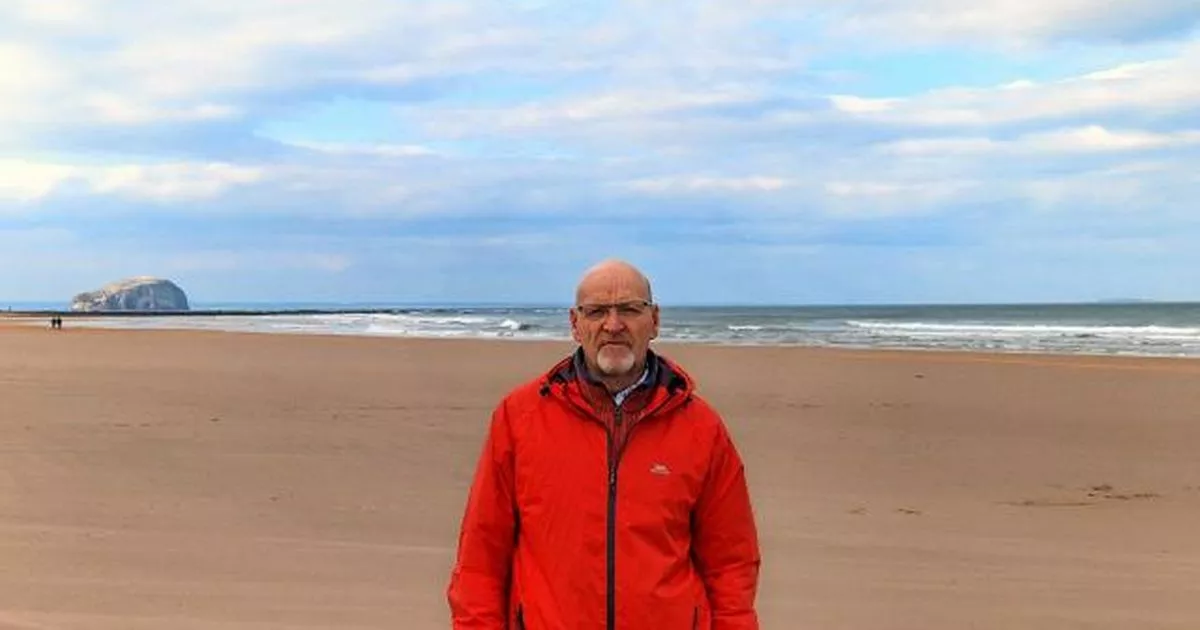A Scottish father of two, fearing for his career in law enforcement, kept his terrifying symptoms hidden from colleagues after suddenly losing all feeling from the waist down. It wasn’t until more than a decade later, when Iain Clark was diagnosed with multiple sclerosis (MS), that he finally shared his condition with his family, friends, and co-workers, experiencing immense relief.
Iain, 60, now working as a Scottish Parliament intranet manager, recalls, “I gradually lost all feeling from the waist down over a couple of days. It was quite scary. It didn’t stop me from doing anything – everything still functioned – I just couldn’t feel anything. You could have stuck a knife in my leg, and I wouldn’t have felt it.”
He feared that disclosing his symptoms would lead his employer to put him on sick leave, affecting his career. “I didn’t want people asking me questions I couldn’t answer or speculating about what could be wrong with me when even I didn’t know,” Iain explains. So, he decided to keep it to himself, except for his wife.

His symptoms eventually subsided after about six weeks, with only lingering pins and needles between his toes. He was diagnosed with transverse myelitis, a rare neurological condition caused by spinal cord inflammation. Despite doctors warning it could return, he remained largely symptom-free for 14 years.
Then, during the COVID-19 lockdown in 2020, Iain noticed he was tripping more often while walking. By the end of 2021, he was diagnosed with secondary progressive MS (SPMS). This time, he decided to be more open about his condition. “We thought it might be better if people just knew,” he says, explaining that it would avoid awkward questions and allow him to explain his need for rest.
His current employer at the Scottish Parliament has been accommodating, helping him transition to a role involving less travel and offering him a designated parking space for his office visits. Iain notes, “They did occupational health, the whole works, whatever I needed and any adjustments. I’m encouraged to take breaks from the screen and stretch my legs. They’re very accommodating.”
For MS Awareness Week, which runs until Sunday, a survey invited people with MS to share their experiences with symptoms often considered sensitive or embarrassing. More than 250 people in Scotland responded, revealing that over half (115 people; 54 percent) kept MS symptoms hidden from colleagues due to embarrassment.
The aim of the awareness week is to encourage people to talk openly about MS and seek support. It also highlights the challenges and daily struggles faced by those with MS, offering resources and support from various charities.
Fifty percent of Scottish respondents said they felt embarrassed by issues related to walking, while 61 percent kept some symptoms from family members, and 67 percent hid them from friends.
For Iain, sharing his diagnosis brought relief. He recommends that those with MS find someone they trust to discuss their symptoms and, if possible, connect with groups or events where they can meet others with similar experiences. This helps them understand they’re not alone and provides a support system.
“Most people in my community know I’ve got MS because I share information online, and I’m happy to talk about it,” Iain says. “I don’t shout about it from the rooftops, but if somebody asks about it, I’m open.”








